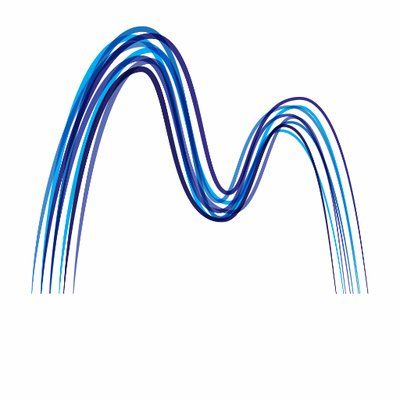预约演示
更新于:2026-02-27
Recombinant alpha-fetoprotein(Merrimack Pharmaceuticals, Inc.)
更新于:2026-02-27
概要
基本信息
在研机构- |
权益机构- |
最高研发阶段终止临床2期 |
首次获批日期- |
最高研发阶段(中国)- |
特殊审评- |
登录后查看时间轴
结构/序列
Sequence Code 34442923

关联
4
项与 Recombinant alpha-fetoprotein(Merrimack Pharmaceuticals, Inc.) 相关的临床试验NCT00458146
A Phase 2, Double-Blind, Placebo-Controlled Study to Evaluate the Efficacy and Safety of 60mg of MM-093 Versus Placebo in Patients With Active Rheumatoid Arthritis on Stable Doses of Methotrexate
The purpose of this study is to determine whether MM-093 is safe and effective in the treatment of RA.
开始日期2007-02-01 |
NCT00444743
A Phase 2, Double - Blind, Placebo - Controlled, Randomized Study to Evaluate the Tolerability, Pharmacokinetics, Pharmacodynamics, and Biologic Activity of MM-093 in Patients With Moderate to Severe Uveitis
The purpose of this study is to evaluate the tolerability, pharmacokinetics, pharmacodynamics, and biologic activity of MM-093 in patients with moderate to severe uveitis.
开始日期2007-02-01 |
NCT00147329
A Phase 2, Double-Blind, Placebo-Controlled, Randomized Study To Evaluate the Tolerability, Pharmacokinetics, Pharmacodynamics, and Biologic Activity of MM-093 in Patients With Moderate to Severe Chronic Plaque Psoriasis
Merrimack is conducting a research study to see if an experimental drug, called MM-093, is safe and effective in the treatment of psoriasis. MM-093 is a genetically engineered version of a naturally occurring protein called alpha fetoprotein (AFP). Adults normally have very small amounts of AFP in their bloodstream. However, during pregnancy, AFP levels in both the mother and the fetus are much higher than normal. It has been observed that some women with psoriasis and other autoimmune diseases such as rheumatoid arthritis have fewer symptoms during pregnancy, particularly during the third trimester. At this time, the levels of AFP in the blood of the mother and fetus are the highest. This observation led Merrimack to begin examining MM-093 as a potential treatment for psoriasis. This study is designed to further test the safety and effectiveness of MM-093 in patients with psoriasis.
开始日期2005-09-01 |
100 项与 Recombinant alpha-fetoprotein(Merrimack Pharmaceuticals, Inc.) 相关的临床结果
登录后查看更多信息
100 项与 Recombinant alpha-fetoprotein(Merrimack Pharmaceuticals, Inc.) 相关的转化医学
登录后查看更多信息
100 项与 Recombinant alpha-fetoprotein(Merrimack Pharmaceuticals, Inc.) 相关的专利(医药)
登录后查看更多信息
104
项与 Recombinant alpha-fetoprotein(Merrimack Pharmaceuticals, Inc.) 相关的文献(医药)2026-12-31·JOURNAL OF MEDICAL ECONOMICS
Cost-effectiveness of the GAAD algorithm for hepatocellular carcinoma surveillance of patients with compensated cirrhosis: a model-based analysis using Italian real-world data
Article
作者: Porta, Camilla ; Pradelli, Lorenzo ; Lampertico, Pietro ; Calvaruso, Vincenza ; Majorini, Maria Teresa ; Cirotto, Giovanni ; Napoli, Lucia ; Garay, Osvaldo Ulises ; Fasano, Tommaso ; Foschi, Francesco Giuseppe
AIMS:
Early detection of hepatocellular carcinoma (HCC) in patients with compensated cirrhosis (CC) is critical for improving prognosis. The GAAD algorithm (gender [biological sex], age, alpha-fetoprotein [AFP], protein induced by vitamin K absence-II [PIVKA-II]) demonstrated good performance for the detection of early-stage HCC. This study aimed to assess the cost-effectiveness of the GAAD algorithm for HCC surveillance in patients with CC in Italy, from the Italian Health Service perspective.
METHODS:
A probabilistic micro-simulation Markov model was adapted to the Italian context to estimate lifetime clinical outcomes and costs of CC patients undergoing bi-annual surveillance with ultrasound (US), US+AFP, GAAD, and US+GAAD. Clinical inputs and utility values were derived from Italian real-world data and published literature. Direct healthcare costs were collected from Italian sources. Costs and outcomes were discounted at an annual 3% rate. Sensitivity analyses were conducted to evaluate the uncertainties in input parameters.
RESULTS:
In a simulated cohort of 100,000 CC patients, QALYs and costs per patient were 6.53 and €35,524 for US, 6.56 and €35,825 for US+AFP, 6.57 and €35,423 for GAAD, and 6.58 and €35,939 for US+GAAD. Compared to US and US+AFP, GAAD was dominant, while US+GAAD was cost-effective (ICUR of €9,482 and €10,951 per QALY gained, respectively). At a willingness-to-pay threshold of €30,000, GAAD was the most cost-effective strategy. Sensitivity analyses confirmed the robustness of results.
LIMITATIONS:
Assumptions were required to estimate the diagnostic performance of US+GAAD, given the absence of prospective validation data. Some clinical parameters were derived from non-Italian sources, which may limit generalizability.
CONCLUSION:
GAAD, alone or combined with US, is a cost-effective strategy for HCC surveillance in CC patients in Italy, improving the detection of early-stage disease. Better performance data for US+GAAD is needed to confirm results.
2025-12-01·Journal of Cancer Research and Therapeutics
Prognostic value of alpha-fetoprotein and des-gamma-carboxyprothrombin in hepatocellular carcinoma treated with transarterial chemoembolization
Article
作者: Lu, Shitao ; Li, Ming-Ming ; Guo, Yapan ; Liu, Zhao ; Xue, Tongqing ; Li, Zhi ; Wang, Peng
ABSTRACT:
Objective::
This study aimed to explore the efficacy and prognostic value of alpha-fetoprotein (AFP) and des-gamma-carboxyprothrombin (DCP) in patients with hepatocellular carcinoma (HCC) undergoing transarterial chemoembolization (TACE) treatment.
Subjects and Methods::
Relationships between the baseline levels of AFP and DCP and the clinical characteristics of 314 patients with HCC who underwent TACE were retrospectively analyzed. Kaplan–Meier curves and Cox regression models were used to analyze the survival data.
Results::
Before TACE, the patient distribution was as follows: 180 were positive for both AFP and DCP, 37 were negative for both, 24 were positive for AFP only, and 73 were positive for DCP only. Of the 131 patients included in the follow-up study after TACE treatment, 47 (35.88%) belonged to the AFP and DCP double-response group, 38 (29.01%) to the single-response group, and 46 (35.11%) to the no-response group. The overall objective response rate was significantly higher in the double- and single-response groups than in the no-response group (
P
< 0.001). The overall survival (OS) and progression-free survival (PFS) rates in the double-response group were significantly longer than those in the other two groups (
P
< 0.001). The response types of AFP and DCP were independent risk factors for PFS (
P
= 0.003) and OS (
P
= 0.007).
Conclusion::
The combination of AFP and DCP provides a valuable serum biomarker for assessing the efficacy of TACE in patients with HCC. The goal for TACE treatment in dual-positive patients is to achieve a dual response for AFP and DCP.
2025-12-01·ANZ JOURNAL OF SURGERY
A Pilot Study of Porcine Acellular Bladder Matrix Filling in the Treatment of Anal Fistulas: A Single‐Center Cohort Study
Article
作者: Ma, Xiang ; He, Qiong ; Luo, Ying ; Ning, Huiwen ; Yang, Feng ; Liu, NiNi ; Sun, Jun ; Zhou, Zuolin ; Cai, Jian ; Xue, Weisong ; Du, Ningchao
ABSTRACT:
Objective:
This study aimed to preliminarily assess the effectiveness of a novel biomaterial, porcine acellular bladder matrix (PABM), in filling fistula tracts.
Summary of Background Data:
Anal fistula plugs (AFPs) made from biomaterials are designed to fill fistulas, promote tissue healing, and prevent anal sphincter damage caused by conventional surgeries.
Methods:
This single‐center cross‐sectional study evaluated PABM‐AFP treatment for anal fistulas between May 2023 and May 2024. Twenty‐eight patients diagnosed with anal fistulas underwent PABM‐AFP filling, with follow‐up conducted for 6–12 months postoperatively.
Results:
The overall success rate was 89.3%, with an efficacy rate of 90.6% for all treated fistulas. Of the three patients who experienced treatment failure, two recovered after receiving thread‐ligating treatment, and the remaining patient who had Crohn's disease experienced partial healing. The mean healing time was 5 weeks, and the average follow‐up duration was 7 months. No adverse complications were reported.
Conclusions:
PABM‐AFP is a promising, safe, and effective treatment option for anal fistulas. This study provides valuable preliminary data to support the clinical use of PABM‐AFP.
100 项与 Recombinant alpha-fetoprotein(Merrimack Pharmaceuticals, Inc.) 相关的药物交易
登录后查看更多信息
外链
| KEGG | Wiki | ATC | Drug Bank |
|---|---|---|---|
| - | - | - |
研发状态
10 条进展最快的记录, 后查看更多信息
登录
| 适应症 | 最高研发状态 | 国家/地区 | 公司 | 日期 |
|---|---|---|---|---|
| 葡萄膜炎 | 临床2期 | 美国 | 2007-02-01 | |
| 斑块状银屑病 | 临床2期 | 美国 | 2005-09-01 | |
| 类风湿关节炎 | 临床2期 | 美国 | 2005-02-01 | |
| 银屑病 | 临床2期 | - | - | |
| 多发性硬化症 | 临床1期 | 英国 | - | |
| 多发性硬化症 | 临床1期 | - | - | |
| 重症肌无力 | 临床1期 | 美国 | - | |
| 重症肌无力 | 临床1期 | 英国 | - | |
| 重症肌无力 | 临床1期 | - | - |
登录后查看更多信息
临床结果
临床结果
适应症
分期
评价
查看全部结果
| 研究 | 分期 | 人群特征 | 评价人数 | 分组 | 结果 | 评价 | 发布日期 |
|---|
No Data | |||||||
登录后查看更多信息
转化医学
使用我们的转化医学数据加速您的研究。
登录
或

药物交易
使用我们的药物交易数据加速您的研究。
登录
或

核心专利
使用我们的核心专利数据促进您的研究。
登录
或

临床分析
紧跟全球注册中心的最新临床试验。
登录
或

批准
利用最新的监管批准信息加速您的研究。
登录
或

生物类似药
生物类似药在不同国家/地区的竞争态势。请注意临床1/2期并入临床2期,临床2/3期并入临床3期
登录
或

特殊审评
只需点击几下即可了解关键药物信息。
登录
或

生物医药百科问答
全新生物医药AI Agent 覆盖科研全链路,让突破性发现快人一步
立即开始免费试用!
智慧芽新药情报库是智慧芽专为生命科学人士构建的基于AI的创新药情报平台,助您全方位提升您的研发与决策效率。
立即开始数据试用!
智慧芽新药库数据也通过智慧芽数据服务平台,以API或者数据包形式对外开放,助您更加充分利用智慧芽新药情报信息。
生物序列数据库
生物药研发创新
免费使用
化学结构数据库
小分子化药研发创新
免费使用

